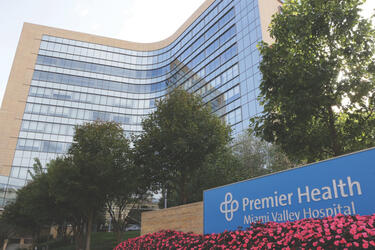The Orthopedic Surgery Residency offers a robust curriculum that balances general orthopedics and subspecialty rotations, providing residents with extensive clinical exposure and academic training.

About the Program
Director: Matthew Cavo, M.D.
The five-year Orthopedic Residency Program curriculum is comprised of general orthopedics and subspecialty rotations. Overall, the residents acquire a broad spectrum of orthopedic training, experiencing the field both from the private practice perspective as well as full-time academic medicine. Because our program is designed to foster one-to-one resident-to-faculty mentor relationships, participating faculty monitor residents closely as they assume increasing responsibility throughout their training.
During residency training, each resident develops and completes a research project under the direction of department faculty. We emphasize and monitor education goals and protect resident conference time in order to further achieve those goals.
For more details, please read Typical Education Program for Residents.
Program Goal
Our program is committed to producing well-trained, academically-oriented orthopedic surgeons while adhering to all Accreditation Council for Graduate Medical Education (ACGME) and American Board of Orthopedic Surgery (ABOS) requirements and standards. The basic philosophy provides a broadly based orthopedic education, exposing residents to all major subspecialties. The learning environment, protected by strict rules, requires residents to attend all educational activities.
Clinical Exposure
The five-year orthopedic residency program provides the resident a well-rounded clinical exposure with graduated responsibilities and exceptional supervised training. Residents receive extensive trauma experience, primarily at Miami Valley Hospital, a Level-I Trauma institution, where orthopedics is an important component of the surgical multidisciplinary team. Residents train in pediatric orthopedics at the Dayton Children's Hospital, providing many outstanding multidisciplinary clinics. Our residents receive additional joint replacement and adult reconstruction training at Miami Valley Hospital South, Atrium Medical Center and the Dayton Veterans Affairs Medical Center.
Mentor-Based Training
Residents progress through subspecialty rotations in a mentor-based training system. This enables the resident to experience continuity of treatment from preoperative evaluation through surgery and postoperative treatment. Rotations consist of three-month blocks in each of the following subspecialties: Adult Reconstruction, Foot & Ankle, Hand, Joint Replacement Knee, Pediatrics, Shoulder & Elbow, Spine, Sports and Trauma.
ACGME Core Competencies for Resident Training
- Patient Care – Compassionate, appropriate and effective for treatment of problems and promotion of health
- Medical Knowledge – Basic science and clinical, established and evolving
- Practice-Based Learning and Improvement – Evaluating one's own care, changing practice by finding information and applying EBM
- Interpersonal and Communication Skills – Effective information exchange and collaboration with patients and colleagues
- Professionalism – Commitment to professional responsibilities, ethical behavior, sensitivity to diversity
- Systems-Based Practice – Using resources, improving system of care and patient safety
Accreditation
Since its inception at Miami Valley Hospital in 1973 under the leadership of Dr. Hobart Klaaren, the Orthopedic Surgery Residency Program has been granted full accreditation by the ACGME Residency Review Committee (RRC).
The RRC reviewed our program in 2007, increasing the number of allowed positions from three residents per year to four residents per year for a new total of 22 available resident positions. All positions are filled through the National Residency Match Program (NRMP).
The internship (PGY-1) conforms to American Board of Orthopedic Surgery (ABOS) guidelines and requirements. In addition to the five-year training track, we now offer a six-year track, which includes a musculoskeletal research year between the first and second clinical training years. The Orthopedic In-Training Exam (OITE) is administered nationally each fall.
